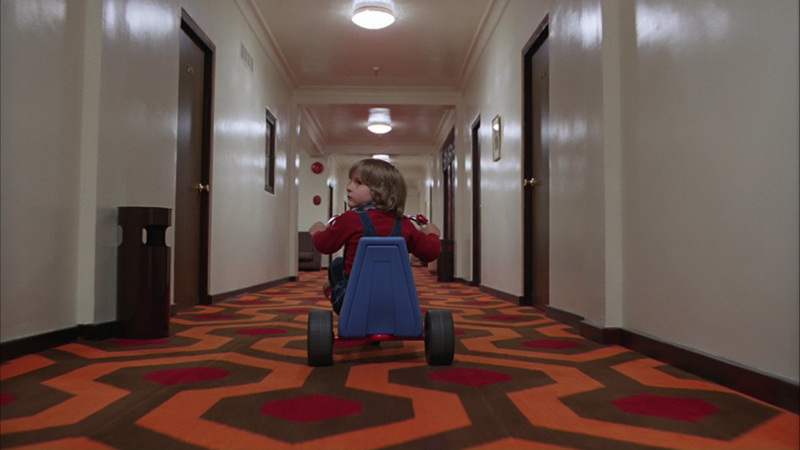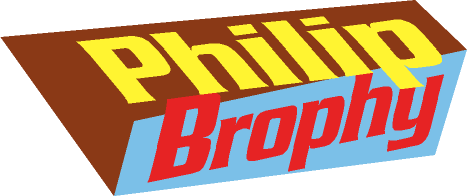BFI Screen Guide
Background
Part of the same BFI Screen Guide as 100 Anime, 100 Modern Soundtracks provides a soundmap to a hundred films that engage the ears. Covering titles as diverse as Way of the Dragon and Apocalypse Now, Le Samourai and Stalker, Angel Dust and Citizen Kane, each entry outlines the film's distinctive contribution to the hitherto underexplored realm of sound and music in cinema.
100 Modern Soundtracks guides the reader through an alternative cinema canon of the ‘ear’, highlighting sonically exciting and remarkable films from across the world and their amazing diversity of purpose and effect. This vibrant book addresses how most film criticism has underestimated the significance of the soundtrack, and details ways in which the film soundtrack is defined by the meeting of two sonic forces: film scoring and sound design.
Through a detailed introduction followed by analyses (or more accurately 'hearing’) of 100 films, the reader is compelled to 'listen – not look’ and to ‘think with their ears’. 100 Modern Soundtracks is a provocative and absorbing guide to some of the most exciting uses of sound and music in popular and international cinema.
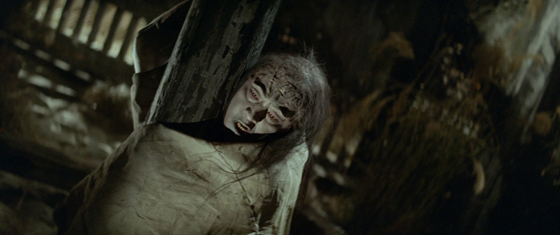
Publication
2005
Japanese translation published by Film Art, Tokyo
2004
British Film Institute publishing - London
Talks
2006
MAGNOLIA - Vocal Noise, Multiplied Music and Song-As-Narrative - Royal Holloway University of London
AKIRA: Post-atomic landscapes & post-sonic mindscapes - University of Liverpool, UK; Queensland Art Gallery, Brisbane
2005
THE CONVERSATION: Invisibility, Silence & Inner Emptiness - University of Minnesota, Minneapolis; University of Iowa, Iowa City
THE COLOUR OF POMMEGRANATES: Lyrics, Icons and Other Musical States - Fordham University, New York
RESIDENT EVIL: Neural Sound Design and Noise Attacks - for the conference "Storytelling: Interactivity, Sound & Music", AFTRS, Sydney
THE EXORCIST: Satanic Vocalization & Bodily Sounds - Screen Studies & Research, AFTRS, Sydney
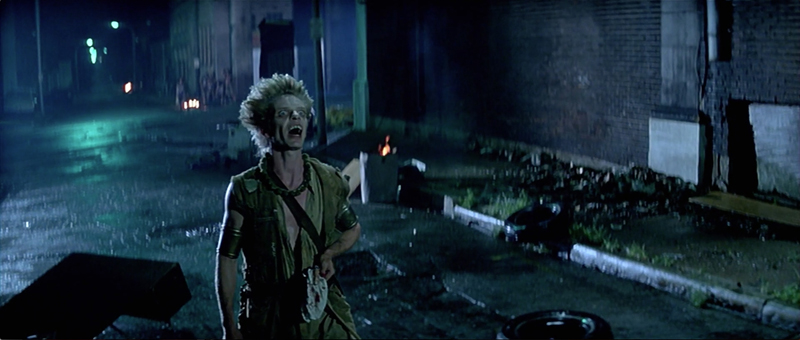
Overview
Excerpt from the introductory essay
Chimera cinema
Welcome to a vital component of the cinematic experience: the Soundtrack. An awkward realm where grand symphonies collide with overhead helicopters in panoramic spectacle; a bloodied field where composers and sound designers come to blows during the final mix; a deep pit of disinformation from which are echoed altruisms like “modern movies are too noisy”, “only orchestras can produce quality music”, “film sound should be natural”, “film music works best when you don’t notice it”, and “the art of movies died with the coming of sound”. Clearly, the Soundtrack is a chimera of the cinema. It is sound and noise; noise and music; music and speech; speech and sound. At no point can it be distilled into a form which allows us to safely state its essential quality. The Soundtrack is a world caught in eternal disequilibrium by two meta-forces: Film Scores – the commissioned composition of music for specific scenes – and Sound Design – the conceptualization of how dialogue, sound effects and atmospheres are edited and mixed to provide the sound for a scene. Despite the many existing ways in which critics and practitioners tend to separate the two forces, they continue to combine according to a wide range of unique, mutative and hermetic logic – little of which conforms to literary models, operatic figures, painterly diagrams or photographic allusions. In order to accept this inability of sound and music to be essenced from each other, one has to think with one’s ears.
The Cinesonic Womb
Sonic beings at our deepest & most unconscious level, we are shaped by sonar and aquatic sensations well before we are birthed into air and light. The sensorium of the womb is our primary induction into sound. The curvaceous film theatre returns us directly to a psycho-physical zone of uterine impressions: deep rumbles, pink noise, shifting timbres, spatial reflections, swelling rhythms. Much has been made of the cinema as some sort of primordial social cave for storytelling. The cinema is a womb where the sonic prevails. We say we ‘watch’ movies, but the ‘cinesonic’ experience is far more than a mere optical event. Try watching a film with no sound: gone is its power, emotion, drama, vitality. Shut your eyes and listen to the soundtrack, and through the blackness one can be excited by the orchestration of voices, atmospheres, effects and music. This is how the sonic engulfs us in the unfolding audiovisual carnival that is the cinema. Yet like a mysterious hieroglyphic stream, those squiggly white lines to the left of the celluloid film strip lay silent even to the inquiring eye. Under-theorised, presumed unimportant, yet vital to the history of audiovisuality, and integral to technological advances in the entertainment industries over the past twenty-five years. You know this without realizing it. But thanks to years of optical and literal orientation, you articulate filmic experience through words which use visual metaphors. Though after a few simple pointers about how sound works, the most complex issues of the Soundtrack’s narrative power can become remarkably evident.
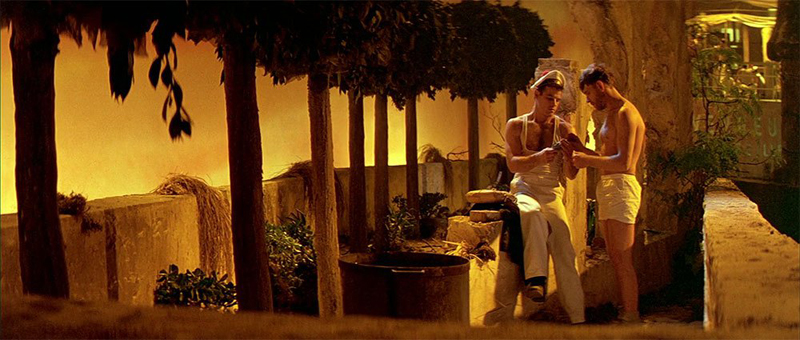
Planet Sound
100 Modern Soundtracks will guide you through the audiovisual layering of a wide range of films, as eclectic in their collection as they are essential in their status. Instead of forcing these varied movies into an pre-fab mould for ascribing significance, they are discussed to demonstrate how they shoot us back into the noise of reality – into its psychological sonorum which affects our everyday sense of time, space, mass, force, presence. The first bird of morning, a distant siren at midnight, a woman’s scream next door, your baby’s giggle, the last breath of your dying father, that inopportune phone ring, that heavenly voice – these are not mere ‘sound effects’ to you or I. Nor do they ever behave so in a film. Night clubs, the ocean, tunnels, elevator muzak, stadium concerts, shopping malls, Walkmans, home theatres, subway PAs, forests, freeways, televisions in the next room while we eat breakfast – we are surrounded by sonic spaces. You have experienced all this – but little has been said about how cinema revives and reworks these temperate aural realities which direct your everyday momentum.
Braille for the Deaf
In an attempt to move away from many well-applied literary and visual frameworks through which the cinema has been perceived, structural models of meaning are disavowed in favour of flow charts of effects. Following the voluminous ways in which sound and music become manifest, every film covered in 100 Modern Soundtracks is treated primarily as a spatio-temporal event whose movement, denouement and performance is cited and noted for its audiovisual impact. Fundamentally, this requires a different mode of writing whose ‘flow’ is more important in its capture, replay and rendering of a film’s momentum, than it is in summarising, reducing or even encapsulating a film’s signifying skeleton. A kind of ‘Braille for the deaf’ is required. While many ‘classics of cinema’ are absent here, its focus on the complexity of the Soundtrack uncovers that the more interesting and engrossing films may not be those missing ‘classics’, but those whose soundtracks psychologically excite the auditory membrane. The ultimate aim of 100 Modern Soundtracks is to induce a consciousness of how the Soundtrack operates on what we presume to be our perceptual facilities for comprehending film.
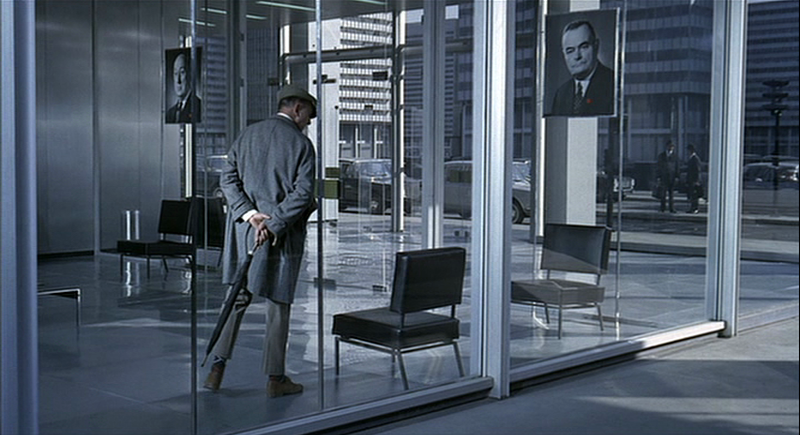
Technical
Listing of titles
1 Akira 1988 Japan - Katsuhiro Otomo
2 American Graffiti 1973 USA - Lucas George
3 Angel Dust 1995 Japan - Sogo Ishii
4 Apocalypse Now 1979 USA - Francis Ford Coppola
5 Arashigaokaa (Onimaru) 1988 Japan - Yoshihige Yoshida
6 The Ballad of Narayama (Narayama bushiko) 1958 Japan - Keisuke Kinoshita
7 Beneath the Valley of the Ultra Vixen 1979 USA - Russ Meyer
8 The Birds 1963 USA - Alfred Hitchcock
9 Bitter Rice (Riso amaro) 1950 Italy - Guiseppi De Santis
10 Blade Runner 1982 USA - Ridley Scott
11 Blood Simple 1985 USA - Joel & Ethan Coen
12 Blue 1993 England - Derek Jarman
13 Blue Steel 1990 USA - Kathryn Bigelow
14 Boogie Nights 1997 USA - Paul Thomas Anderson
15 California Split 1974 USA - Robert Altman
16 Carnival of Souls 1962 USA - Herk Harvey
17 Car Wash 1976 USA - Michael Schultz
18 Cast Away 2000 USA - Robert Zemeckis
19 Citizen Kane 1941 USA - Orson Welles
20 A Clockwork Orange 1971 England - Stanley Kubrick
21 Close Encounters of the Third Kind (Special Edition) 1977 USA - Steven Speilberg
22 Colors 1987 USA - Dennis Hopper
23 The Colour of Paradise (Rang-e khoda) 1999 Iran - Majid Majidi
24 Colour of Pomegranates (Sayat Nova) The 1969 Russia - Sergei Paradjanov
25 Contact 1997 USA - Robert Zemeckis
26 Convent The (Convento O) 1998 Portugal - Manuel De Olivera
27 The Conversation 1974 USA - Francis Ford Coppola
28 Crash 1996 Canada - David Cronenberg
29 Crazy 2000 Netherlands - Heddy Honigmann
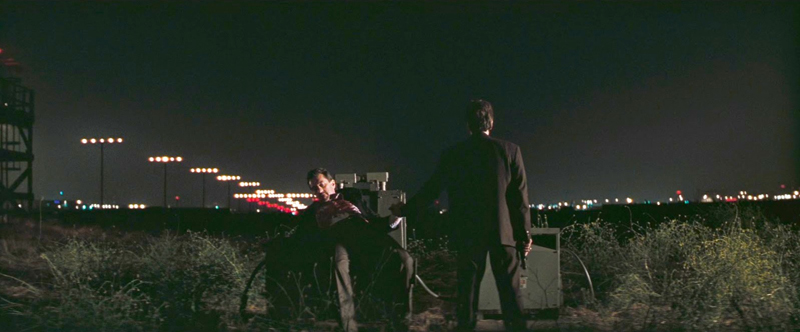
30 Days of Wine and Roses 1962 USA - Blake Edwards
31 Dead Man 1995 USA - Jim Jamusch
32 Distant Thunder (Ashani sunket) 1973 India - Satyajit Ray
33 Do the Right Thing 1989 USA - Spike Lee
34 Doctor Dolittle 1998 USA - Betty Thomas
35 Escape from New York 1981 USA - John Carpenter
36 The Exorcist 1971 USA - William Friedkin
37 Face/Off 1997 USA - John Woo
38 Fantasia - The Sorcerer’s Apprentice 1940 USA - James Algar
39 Forbidden Planet 1954 USA - Fred Macleod Wilcox
40 Gate of Flesh (Nikutai no mon) 1965 Japan - Seijun Suzuki
41 Godzilla - King of Monsters (Gojira) 1954 Japan - Inoshiro Honda
42 Goodfellas 1990 USA - Martin Scorsese
43 Guided Muscle 1955 USA - Charles M. Jones
44 Gummo 1997 USA - Harmony Korine
45 Hail Mary (Je vous salue Marie) 1985 France - Jean Luc Godard
46 The Haunting 1999 USA - Jan De Bont
47 Heat 1995 USA - Michael Mann
48 Hour of the Wolf (Vargtimmen) 1968 Sweden - Ingmar Bergman
49 House by the River 1950 USA - Fritz Lang
50 I Spit on Your Grave (Day Of The Woman) 1978 USA - Mier Zarchi
51 I Stand Alone 1998 France - Gaspar Noe
52 India Song 1975 France - Margueritte Duras
53 The Innocents 1961 England - Jack Clayton
54 The Insect Woman (Nippon konchuki) 1963 Japan - Shoei Imamura
55 Kaidan 1964 Japan - Masaki Koyabashi
56 The Keep 1983 USA - Michael Mann
57 Koyaannisqatsi 1982 USA - Godfrey DeReggio
58 Last Year at Marienbad (L’anée derniére a Marienbad) 1959 France - Alain Resnais
59 Lost Highway 1997 USA - David Lynch
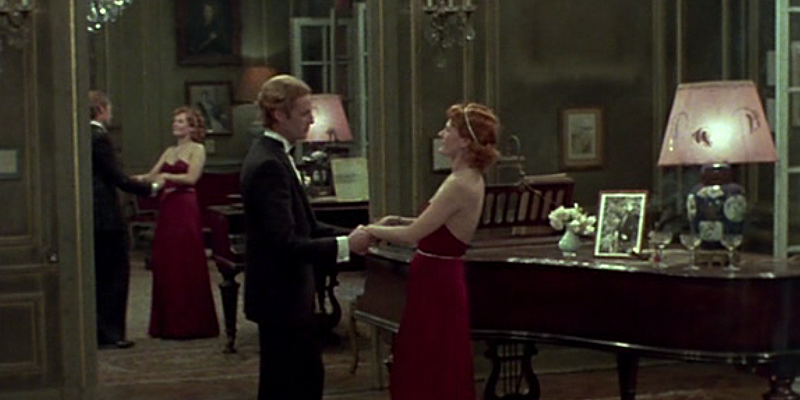
60 M 1931 Germany - Fritz Lang
61 Magnolia 1999 USA - Paul Thomas Anderson
62 The Man Who Lies (L’homme qui ment) 1968 France - Alain Robbe-Grillet
63 Metropolis (version) 1983 USA - Fritz Lang
64 Oedipus Rex (Edipo re) 1967 Italy - Pier Paolo Pasolini
65 Once Upon a Time in the West (C’era una volta il west) 1969 Italy - Sergio Leone
66 Patty Hearst 1988 USA - Paul Schrader
67 The Pawnbroker 1965 USA - Sydney Lumet
68 The Pittsburgh Trilogy 1972 USA - Stan Brakhage
69 Planet of the Apes 1968 USA - Franklin J. Schaffner
70 Playtime 1967 France - Jacques Tati
71 Pride of the Marines 1945 USA - Delmer Daves
72 Psycho 1960 USA - Alfred Hitchcock
73 Punch-Drunk Love 2002 USA - Paul Thomas Anderson
74 Querelle 1982 Germany - Rainer Werner Fassbinder
75 Resident Evil 2002 England - Paul Anderson
76 Rosetta 1999 Belgium - Luc & Jean Pierre Dardenne
77 Rumble Fish 1983 USA - Francis Ford Coppola
78 Samurai The (Samourai le) 1967 France - Jean-Pierre Melville
79 Satyricon 1969 Italy - Federico Fellini
80 Scarface 1983 USA - Brian DePalma
81 Scorpio Rising 1968 USA - Kenneth Anger
82 Seduced and Abandoned (Sedotta e abbandonata) 1964 Italy - Pietro Germi
83 Shaft 1971 USA - Gordon Parks Jr.
84 The Shining 1980 England - Stanley Kubrick
85 Some Kind of Wonderful 1987 USA - Howard Deutch
86 The Spirit of the Beehive (Esp’ritu de la colemna El) 1973 Spain - Victor Erice
87 Stalker 1979 Russia - Andrei Tarkovsky
88 Stand By Me 1986 USA Reiner Rob
89 Straight Story The 1999 USA - David Lynch
90 Suspiria 1977 Italy - Dario Argento
91 Sympathy for the Devil (One Plus One) 1968 France - Jean Luc Godard
92 Talk Radio 1988 USA - Oliver Stone
93 Taxi Driver 1976 USA - Martin Scorsese
94 Teenage Rebellion 1967 USA - Norman T. Herman & Richard Lester
95 Temptress Moon (Feng yue) 1996 China - Kaige Chen
96 Tron 1982 USA - Steve Lisberger
97 Vagabond (San toit ni loi) 1985 France - Agnes Varda
98 Videodrome 1983 Canada - David Cronenberg
99 Violated Angels (Okasareta byakui) 1967 Japan - Koji Wakamatsu
100 Way of the Dragon (Meng long guojiang) 1972 Hong Kong - Bruce Lee
